Pakistan, one of the largest Muslim states in the world, is a living and exemplary monument of Quaid-i-Azam Muhammad Ali Jinnah. With his untiring efforts, indomitable will, and dauntless courage, he united the Indian Muslims under the banner of the Muslim League and carved out a homeland for them, despite stiff opposition from the Hindu Congress and the British Government.
Quaid-e-Azam, Muhammad Ali Jinnah was born on 25th December 1876 at Vazeer Mansion Karachi, was the first of seven children of Jinnahbhai, a prosperous merchant. After being taught at home, Jinnah was sent to the Sindh Madrassah High School in 1887. Later he attended the Mission High School, where, at the age of 16, he passed the matriculation examination of the University of Bombay. On the advice of an English friend, his father decided to send him to England to acquire business experience. Jinnah, however, had made up his mind to become a barrister.
Quaid-e-Azam, Muhammad Ali Jinnah was born on 25th December 1876 at Vazeer Mansion Karachi, was the first of seven children of Jinnahbhai, a prosperous merchant. After being taught at home, Jinnah was sent to the Sindh Madrassah High School in 1887. Later he attended the Mission High School, where, at the age of 16, he passed the matriculation examination of the University of Bombay. On the advice of an English friend, his father decided to send him to England to acquire business experience. Jinnah, however, had made up his mind to become a barrister.
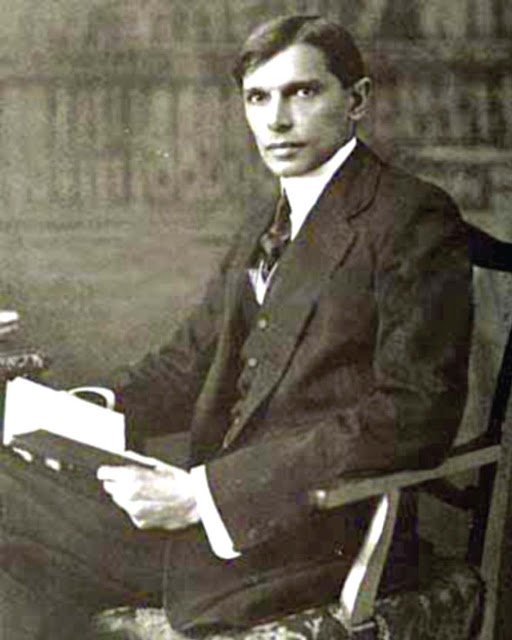
He went to England for further studies in 1892 at the age of 16. In 1896, Jinnah qualified for the Bar and was called to the Bar in 1897. In keeping with the custom of the time, his parents arranged for an early marriage for him before he left for England.
During his student years in England, Jinnah came under the spell of 19th-century British liberalism, like many other future Indian independence leaders. This education included exposure to the idea of the democratic nation and progressive politics. Quaid-e-Azam Muhammad Ali Jinnah was the top lawyer of that time and he achieves his aim to earn 1500 rupees in a day.
During his student years in England, Jinnah came under the spell of 19th-century British liberalism, like many other future Indian independence leaders. This education included exposure to the idea of the democratic nation and progressive politics. Quaid-e-Azam Muhammad Ali Jinnah was the top lawyer of that time and he achieves his aim to earn 1500 rupees in a day.
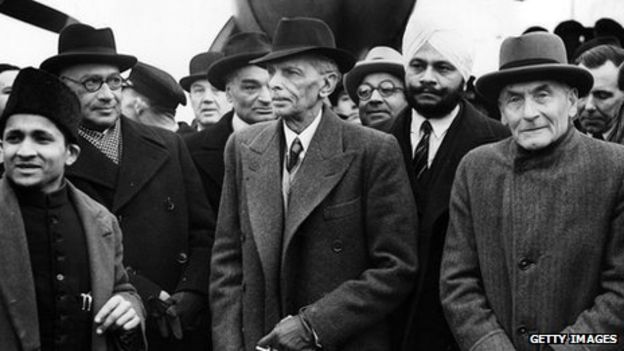
In 1906, Jinnah joined the Indian National Congress, which was the largest Indian political organization. Like most of the Congress at the time, Jinnah did not favor outright independence, considering British influences on education, law, culture, and industry as beneficial to India. Jinnah became a member on the 60-member Imperial Legislative Council. The council had no real power and included a large number of UN-elected pro-Raj loyalists and Europeans. Jinnah had initially avoided joining the All India Muslim League, founded in 1906, regarding it as too Muslim oriented. However, he decided to provide leadership to the Muslim minority.
Eventually, he joined the League in 1913 and became the president at the 1916 session in Lucknow. Jinnah was the architect of the 1916 Lucknow Pact between the Congress and the League, bringing them together on most issues regarding self-government and presenting a united front to the British. In 1924, Jinnah reorganized the Muslim League, of which he had been president since 1916, and devoted the next seven years attempting to bring about unity among the disparate ranks of Muslims and to develop a rational formula to effect a Hindu-Muslim settlement, which he considered the precondition for Indian freedom. He attended several unity conferences, wrote the Delhi Muslim Proposals in 1927, pleaded for the incorporation of the basic Muslim demands in the Nehru report. Jinnah broke with the Congress in 1920 when the Congress leader, Mohandas Gandhi, launched a Non-Cooperation Movement against the British, which Jinnah disapproved of. Unlike most Congress leaders, Gandhi did not wear western-style clothing, did his best to use an Indian language instead of English, and was deeply rooted in Indian culture. Gandhi's local style of leadership gained great popularity with the Indian people. Jinnah criticized Gandhi's support of the Khilafat Movement, which he saw as an endorsement of religious zealotry. Jinnah quit the Congress, with a prophetic warning that Gandhi's method of mass struggle would lead to divisions between Hindus and Muslims and within the two communities. Becoming president of the Muslim League, Jinnah was drawn into a conflict between a pro-Congress faction and a pro-British faction. In 1941, Muhammad Ali Jinnah founded Dawn, a major newspaper that helped him propagate the League's point of views. Jinnah felt that the state of Pakistan should stand upon true Islamic tradition in culture, civilization and national identity rather than on the principles of Islam as a theocratic state.
The Provincial Assembly elections of 1937 swept the Congress to power in eight provinces. After almost two years of oppressive rule, Muslims under the leadership of Jinnah celebrated the Day of Deliverance at the end of Congress rule.
The Muslim League held its annual session at Lahore in March 1940. This was presided over by Quaid-i-Azam. The demand for Pakistan was formally put forward here. This goal was realized on August 14, 1947. Quaid-i-Azam Muhammad Ali Jinnah was appointed as its first Governor General.
The Muslim League held its annual session at Lahore in March 1940. This was presided over by Quaid-i-Azam. The demand for Pakistan was formally put forward here. This goal was realized on August 14, 1947. Quaid-i-Azam Muhammad Ali Jinnah was appointed as its first Governor General.
He also had a rebuttal to Nehru's statement which argued that the only two parties that mattered in India were the British Raj and INC. Jinnah stated that the Muslim League was the third and "equal partner" within Indian politics. Jinnah became the first Governor-General of Pakistan and president of its constituent assembly. Pakistanis view Jinnah as their revered founding father, a man that was dedicated to safeguarding Muslim interests during the dying days of the British Raj. Most of the Pakistanis take Jinnah as hero for their personal lives.
Jinnah believed in the force of Islam as he said that Islam is a dynamic force that can unite the Muslims. It can help to overcome the present crisis. It’s a source of inspiration and guidance providing an ethical foundation, a framework, social order, and civilization.
Guidance & inspiration for constitution-making and Governance
Guidance & inspiration for constitution-making and Governance
He also talked of the modern notions of state, constitution, civil and political rights, and democracy. He assured that the constitution of Pakistan would be framed by the elected assembly.
The establishment of Pakistan brought even greater responsibilities for Jinnah. The refugee problem, the withholding of Pakistani assets by India, and the Kashmir problem were a real test for the Quaid. However, his indomitable will prevailed. He worked out a sound economic policy, established an independent currency and the State Bank for Pakistan. He chose Karachi as the federal capital.
However, he did not live long to witness the progress of the state that he had founded. On September 11, 1948, he died after a protracted illness at Karachi. He was buried in Karachi that witnessed the entire nation mourning over an irreparable loss.
The Shrine of Quaid-e-Azam Muhammad Ali Jinnah is situated in Karachi.
Famous Quotas
''With faith, discipline and selfless devotion to duty, there is nothing worthwhile that you cannot achieve"
(Muhammad Ali Jinnah)
"Think 100 times before you take a decision, But once that decision is taken, stand by it as one man"
(Muhammad Ali Jinnah)
"We should have a State in which we could live and breathe as free men and which we could develop according to our own lights and culture and where principles of Islamic social justice could find free play"
(Muhammad Ali Jinnah)
"You have to stand guard over the development and maintenance of Islamic democracy, Islamic social justice and the equality of manhood in your own native soil"
(Muhammad Ali Jinnah)
"No struggle can ever succeed without women participating side by side with men."
(Muhammad Ali Jinnah)
"Come forward as servants of Islam, organize the people economically, socially, educationally and politically and I am sure that you will be a power that will be accepted by everybody."
(Muhammad Ali Jinnah)
"My message to you all is of hope, courage, and confidence. Let us mobilize all our resources in a systematic and organized way and tackle the grave issues that confront us with grim determination and discipline worthy of a great nation"
(Muhammad Ali Jinnah)
"Pakistan not only means freedom and independence but the Muslim Ideology which has to be preserved, which has come to us as a precious gift and treasure and which, we hope other will share with us"
(Muhammad Ali Jinnah)
"Islam expect every Muslim to do this duty, and if we realize our responsibility time will come soon when we shall justify ourselves worthy of a glorious past"
(Muhammad Ali Jinnah)
"There are two powers in the world; one is the sword and the other is the pen. There are great competition and rivalry between the two. There is a third power stronger than both, that of the women"
(Muhammad Ali Jinnah)
"No nation can rise to the height of glory unless your women are side by side with you"
(Muhammad Ali Jinnah)
"You are free; you are free to go to your temples, you are free to go to your mosques or to any other place or worship in this State of Pakistan. You may belong to any religion or caste or creed - that has nothing to do with the business of the State"
(Muhammad Ali Jinnah)
"Expect the best, Prepare for the worst"
(Muhammad Ali Jinnah)


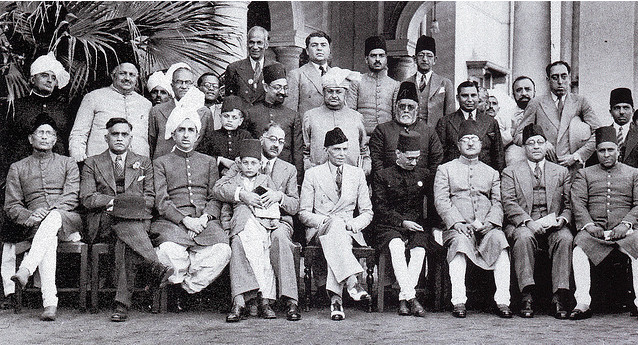
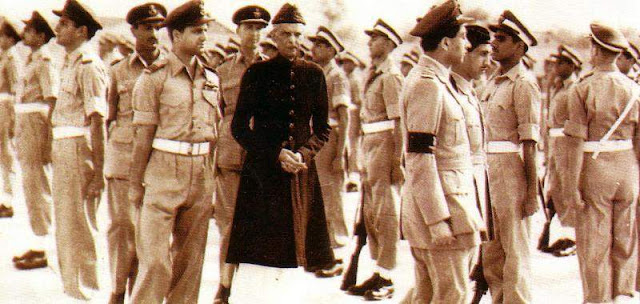
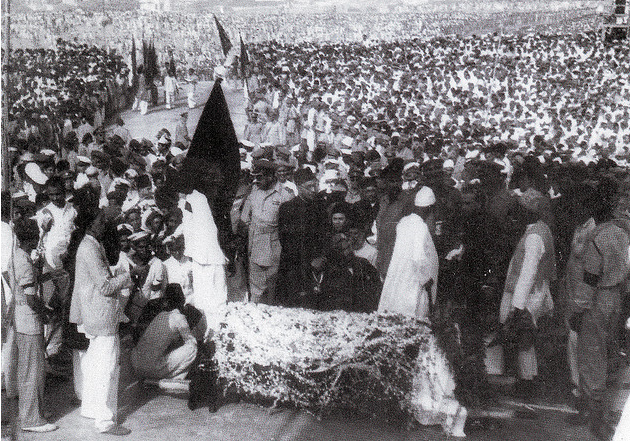
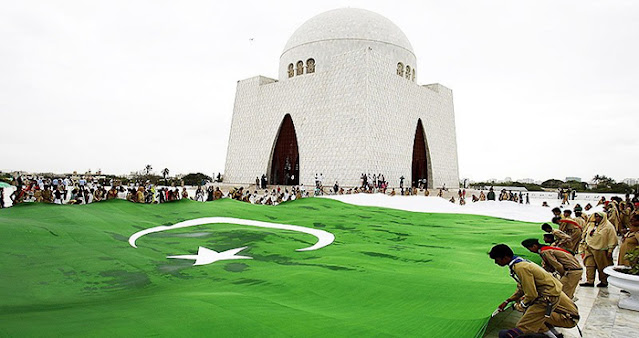
EmoticonEmoticon